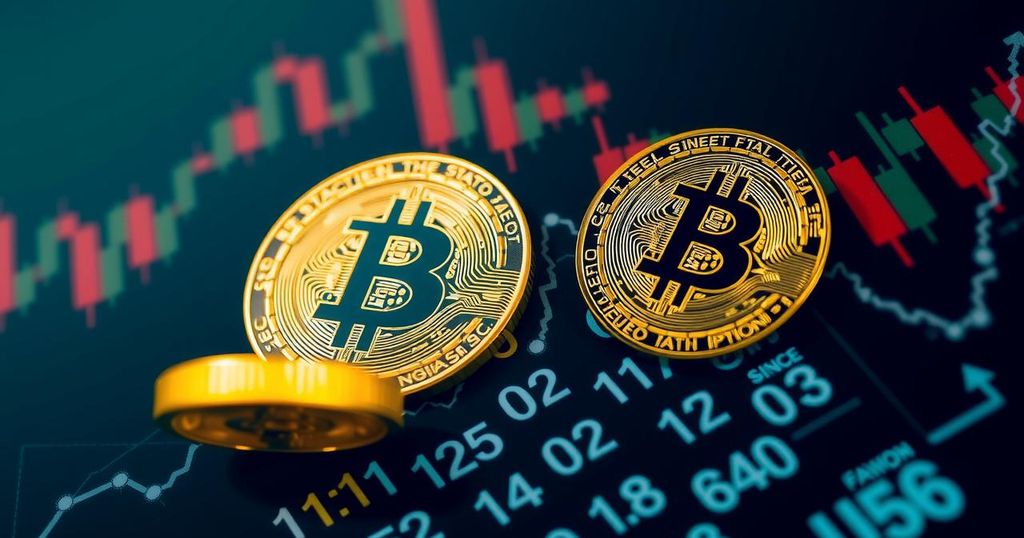Stock Market and Bitcoin Surge to Record Highs: Sustainability in Question

Stock markets and Bitcoin have surged to record highs following the presidential election, with Bitcoin reaching over $87,000, a 235% increase. Despite this financial exuberance, experts caution against potential market instability stemming from Trump Administration policies, particularly in relation to tariffs and interest rates. Concerns include the volatility of cryptocurrencies and possible economic recession linked to new policies.
Following the recent presidential election, major stock indices such as the Dow Jones, NASDAQ, and S&P 500 have achieved unprecedented heights, with the Dow, NASDAQ, and S&P 500 recording all-time highs. Concurrently, Bitcoin has surged significantly, climbing from approximately $37,000 a year ago to over $87,000, marking an impressive increase of 235%. This surge reflects the heightened market enthusiasm attributed to the prospective policies of President-elect Trump, yet concerns persist regarding the sustainability of this growth. Analysts suggest that the initial excitement surrounding the election may be countered by the potential implications of the Trump Administration’s policies, which could introduce volatility into the markets. Terry Connelly, dean emeritus of Golden Gate University Graduate School of Business, emphasizes that “right now the markets are another example of hope triumphing over experience.” He warns of the consequences that may arise from anticipated changes in tax code and immigration policy, which could adversely affect economic stability. Furthermore, recent trends indicate that, despite falling interest rates, mortgage rates have experienced an increase. This contradiction can be attributed to longer-term projections regarding interest rates, which play a critical role in determining mortgage costs. Moreover, new tariffs on imported goods could intensify inflation, consequently hindering interest rate reductions and potentially leading to an increase in those rates as the market adjusts to newly implemented tariffs from the U.S., along with retaliatory measures from trading partners. Connelly further cautions that if tariffs and mass deportations materialize, they could precipitate a recession, creating a compounded effect on the stock market. On the cryptocurrency front, heightened interest in Bitcoin has resulted from aspirations to establish the U.S. as a leader in the crypto space. However, the latter remains susceptible to significant volatility, hacking, and increased competitive pressures within the market. In a stark contrast to his previous stance, President Trump expressed intentions to instate a Bitcoin and Crypto Presidential Advisory Council, highlighting the evolving approach toward cryptocurrencies during his forthcoming term. Michael Lee, a cryptocurrency expert, notes this shift as a striking departure from Trump’s earlier perspectives.
The article discusses the remarkable performances of the financial markets and Bitcoin following the presidential election of 2020. It explains the context of rising stock prices and Bitcoin values, attributing these increases to investor optimism regarding the incoming Trump Administration’s policies. However, the article also provides insights into the potential risks associated with these market developments, including tariff implications, inflation concerns, and the volatile nature of cryptocurrencies. It draws on expert opinions to assess the sustainability of these market trends amidst anticipated policy changes.
In conclusion, while the stock market and Bitcoin have reached remarkable highs post-election, the sustainability of this growth remains uncertain. Analysts warn of potential market instability due to the implications of new tariffs and economic policies anticipated under the Trump Administration. Furthermore, the cryptocurrency market, though currently buoyed by enthusiasm, faces inherent risks such as volatility and cyber threats. As such, investors are advised to remain vigilant and consider the broader economic landscape in their decision-making processes.
Original Source: www.ktvu.com








